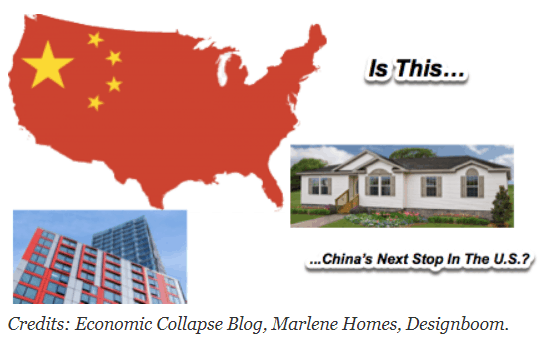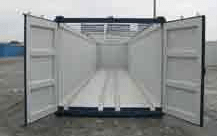
According to the Delaware Business News, the group met to discuss a business venture that would leverage Chinese investment and manufacturing to produce modular housing units at low cost for Delaware customers.
“The plan is to partner with Chinese manufacturer Maristar to produce modular homes for about $80,000 each,” said Dennis O’Brien, CEO of InfoVest, a Wilmington-based venture capital firm that spearheaded the conversations.

“Delaware is in trouble. China can be the answer to that trouble.”
O’Brien, an investor and entrepreneur, is also a former foreign correspondent for China Daily and a long-time champion of economic ties between the two countries.
Maristar’s primary segment is shipping containers, but they say that they have adjusted their facilities to produce modular homes with a similar structure. They would adapt the homes to fit local building codes, and then ship them to the U.S.
While O’Brien pushed for the idea of utilizing Maristar to build affordable housing for low income areas of Wilmington, the group ultimately decided that the idea was not feasible without heavy collaboration with local government.
“It would probably take a lot more groundwork, especially with the social programs, to get lined up,” said Christopher Counihan, a professor of international relations at the University of Delaware.
“Making the deal too risky and complicated for the Chinese investors is also a concern.”
So, the group decided to pivot to a new target: foreign-born college students.

“The number of Chinese students attending the college has increased 200 percent per year,” said Dr. Jianguo Chen, director of the University of Delaware’s Confucius Institute.
“ The University only plans to attract more of those students, and housing could become an issue.”
“We thought the container modules could serve that Chinese population,” said Counihan.

The plan would have the homes stacked into vertical apartments, similar to those in London at the Apex House Tower, which stands 29 stories and is planned to house 560 students.
Both American and Chinese students would be housed in the apartments, encouraging integration among the groups.
InfoVest says that it requires at least $100 million to begin, and the majority of that money could come from Chinese investment company Shanghai Yongquan Entrust Investment Development Center LP.
“Delaware is a perfect test case for how the Chinese can help us as a country,” said O’Brien.
“We are reaching out to American investors as well.”
The group said that the goal is for the housing to be available to students in September 2018.
What Happened to…Made in the USA?

MHProNews and MHLivingNews are among the factory-built housing industry operations that have made the case that domestically made modern manufactured and modular homes are a viable solution to help solve the problem of quality affordable housing throughout the country.
Given the many capable U.S. firms that could deliver a superior quality and less expensive homegrown product, one has to wonder why this group, which included professors, did no due diligence into U.S. alternatives, including manufactured housing?

“Imagine engineered homes, that meet or exceed strict federal safety, energy and performance standards, built to the nation’s only preemptive code for permanent homes,” said Daily Business News Publisher L.A. “Tony” Kovach.
“By using the same proven systems that keep costs down on cars, smartphones, clothing or other produced products, you save on labor, time, have about 30% less waste, can buy in bulk and thus save money.”
“And the U.S. Census Bureau and Government Accountability Office state our homes are about half the cost of conventional construction,” he added
Kovach says the industry may be too lax about overseas operations coming to America, and taking domestic producers market share.
For more on Chinese companies making inroads into modular housing, including China National Building Material Company (CNBM) joining forces with Barcelona, Spain based Barcelona Housing Systems and U.K. housing association Your Housing Group (YHG), and renewable energy supplier, Welink to build six prefab factories, click here. ##
(Image credits are as shown above, and when provided by third parties, are shared under fair use guidelines.)

Submitted by RC Williams to the Daily Business News for MHProNews.

























